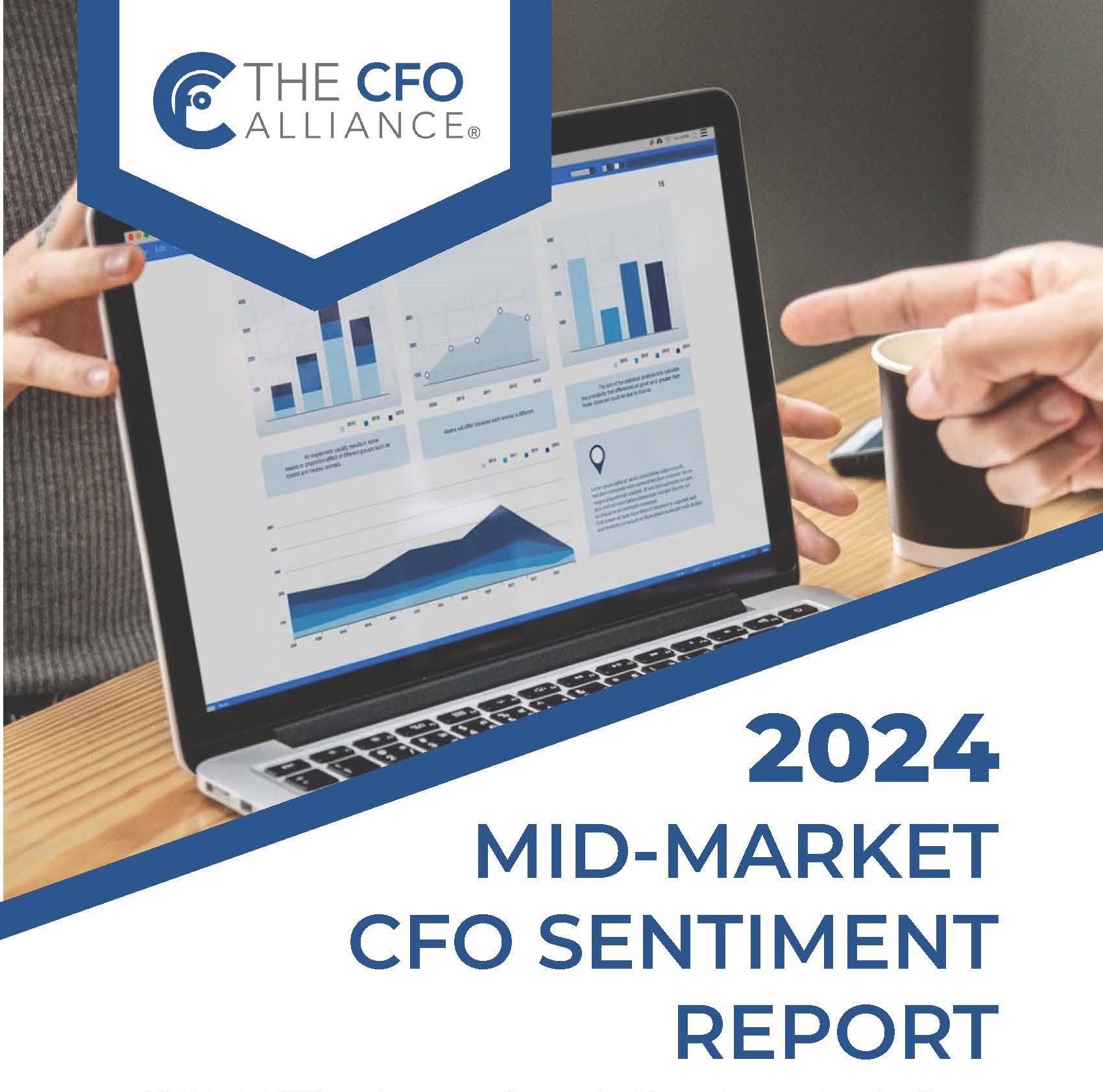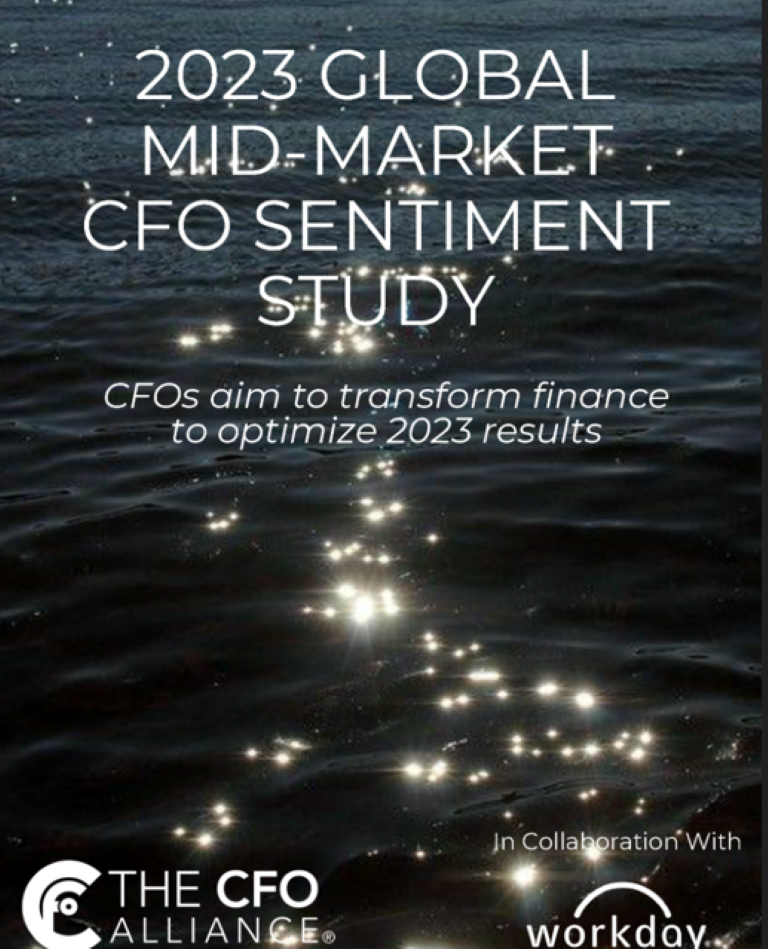In the News! - Recent news article from CFO.com
Diversity, equity and inclusion (DEI) has received an increased level of scrutiny over recent months. The initiative, rooted in the intention of creating a more diverse work environment, in some ways has manifested into legally and ethically questionable practices. Not only do some of these practices challenge the idea of a meritocracy in the workplace, but some elements may already be illegal via Title VII of the Civil Rights Act of 1964.
As some organizations and states have started cutting back on DEI investment, DEI initiatives appear in need of reevaluation and reboot by company leadership teams. CFOs can reestablish the baseline for DEI’s value proposition, depoliticize these issues, identify any legal wrongdoings in the hiring and promotion process, and look beyond the most obvious parts of DEI to better implement it.
The CFO Impact
The CFO’s role in making decisions around DEI is multifaceted. According to Nick Araco Jr., CEO and chair of the CFO Alliance, a peer-based organization for finance executives, narrowing the individual components of DEI rather than examining it holistically involves risk.
“Some of the problems in conversations arise when you try to isolate one area of diversity, equity, and inclusion,” said Araco Jr. “I think there are multiple parts of DEI that need to be looked at, or CFOs may get themselves into trouble by turning it into some type of investor or marketing pitch.”
Continued Araco Jr.: “CFOs need to reevaluate their retention and promotion programs to make sure they support company values related to DEI. They also need to look at their training and education programs to ensure they support equitable workplaces where everyone has an equal opportunity to succeed. There is a need to make sure that finance leaders are evaluating and ensuring there is representation in leadership throughout the company that actually reflects the perspectives of all the stakeholders involved in the organization.”
According to Araco, when DEI efforts are hyper-focused on one part of the issue, especially within finance, that’s where the politics and loss of the idea of meritocracy can come into play.
“Finding the balance of [meritocracy] and DEI is extremely difficult,” Araco Jr. said. “With the CFOs I am meeting with across the U.S., we are discussing how to target and fill certain skills gaps, and design roles that attempt to anchor the finance team’s capabilities. The DEI focus here is how to identify that talent and put it into place with professional development, and help CFOs determine with whom opportunities lie and with whom changes may have to be made.”
"If [CFOs] are faced with a situation where they’re uncomfortable, they will assess, determine whether or not it aligns with what they believe and what’s best for the company. If they feel like it’s not right, they will not stick around for long.”
Nick Araco Jr.
Founder and Chair, The CFO Alliance
For CFOs who may feel political pressure to fill hiring quotas or make questionable decisions in the name of DEI, Araco Jr. believes the good ones will just quietly leave instead of putting up with political pressure or verbalizing their discontent.
“I will tell you right now, if a CFO is uncomfortable with how their company is approaching DEI, they will likely leave,” Araco Jr. said. “There isn’t a CFO out there that’s going to put their head down and put their neck on the chopping block for this. If they are faced with a situation where they’re uncomfortable, they will assess, determine whether or not it aligns with what they believe and what’s best for the company. If they feel like it’s not right, they will not stick around for long.”
The Legal Impact
CFOs increasingly involved in organizational risk management and should be aware of how certain DEI hiring practices can create legal predicaments. According to Laura Schneider, chair of labor and employment practice at law firm WilmerHale, there are important legal issues to keep in mind when hiring practices incorporate DEI.
When asked about the diversity officer’s role in the hiring process, Schneider clarified that boundaries need to be set between that person and the applicant pool. “The chief diversity officer should never be in that [hiring] room talking about race or gender,” she said. “You cannot select job applicants based on those categories.”
Laura Schneider, Chair of Labor and Employment Practice, WilmerHale
Schneider said the most legally sound way to incorporate diversity into finance teams is to expand the applicant pools themselves, not the demographics within them.
“It is perfectly lawful to try to diversify your pool of applicants and look for applicants in places where perhaps you’ve never looked before. The group that is hired from these pools will hopefully be diverse without making decisions based on discriminatory factors,” Schneider said.
Schneider said the relationships between finance and diversity leadership are twofold. Diversity leadership can help expand traditional hiring practices. However, the balance between their involvement in talent pool aggregation and the hiring process is a matter of lawfulness.
“Chief diversity officers can help everyone in the company appreciate and understand the value that a variety of experiences, backgrounds, and perspectives can bring to the company,” Schneider said. “Their job is to look for better training, better mentoring, and create more opportunities for every individual who is working in the company, with an eye on the values of inclusion and diversity.”
“If a CFO tells their hiring managers to go out and hire a certain number of one group, they’re likely going to break the law. And, if you go about achieving your diversity goals in a way that makes them look like quotas, you will likely run afoul of the law.”
Laura Schneider
Chair of Labor and Employment Practice, WilmerHale
“This should not be a position that finance views as a place that focuses on advancement and promotion of certain groups,” she said. “On top of the training, chief diversity officers may have much to do with the talent acquisition process like we previously mentioned.”
Race and gender-based quotas, many of which have been implemented in Fortune 100 companies, are where illegality comes into play. “You can’t say we must hire 20% of one group,” Schneider said. “If a CFO tells their hiring managers to go out and hire a certain number of one group, they’re likely going to break the law. And, if you go about achieving your diversity goals in a way that makes them look like quotas, you will likely run afoul of the law.”
ROI and Authenticity
With the bottom line in mind, some CFOs believe DEI can bring a return to its impact on organizational culture — if implemented correctly. For Anthony Rose, CFO of Kapitus, his approach is looking at it like how a CFO would look at any part of the organization.
“As a CFO, I look at every program we have at our company as to how they can generate a positive ROI, and I believe DEI is no different.” said Rose.
“I think ROI comes from organizational authenticity in DEI, [but] it’s like, if a majority of the black students at Harvard were from the top decile of income, is that really diversity?” Anthony Rose, CFO, Kapitus
“I think diversity is great, but there needs to be diversity in everything,” Rose continued. “If you’re a Republican or Democrat, if you’re from a small town or a big town, it brings a different element to the company in terms of how you think, solve problems, and think through important things. You get to a way better place as a company if you don’t only have people who are Columbia [University] graduates born in the tri-state area.”
Rose also mentioned how DEI can bring ROI through talent retainment.
″[DEI] should bring some positive return for the company and its [stakeholders],” Rose said. “The company is more productive with good practices in place, and people may stay longer. And as CFO, those are the reasons why you would want to focus on having authentic DEI policies in place.”



